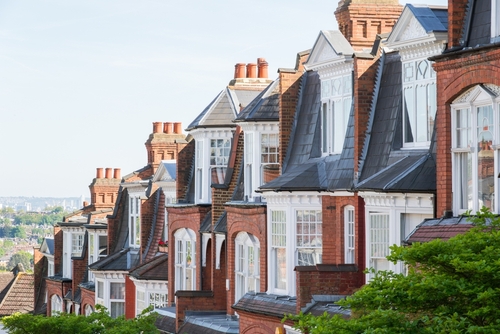If you’re new to the probate process, then you’re probably wondering about your specific responsibilities. In this post we’ll discuss all of your key responsibilities when it comes to probate and property.
We know that the probate process can be challenging. That’s why we’re committed to helping you get the cover you need throughout the process, and beyond. For more information, get in touch with us, call us on 0208 8290 9086 or you can email the team direct at personal@anthonyjones.com.
What is Probate?
When someone passes away, if they left a will, it will be up to the will’s executor to ensure that every request in the will is carried out in accordance with the deceased’s wishes. The process of settling debts and setting affairs in order is known as probate.
If you’d like to know more, read our full guide to probate. This guide explains the various steps of the probate process, along with the executor’s key responsibilities, with some information on how long the process might take.
What Documents Will You Need to Apply for Probate?
You cannot do anything until you get a Grant of Probate. This is a legal document that demonstrates to key organisations, including banks, building societies, and the Land Registry, that you have the right to manage the deceased’s estate.
You can apply for a Grant of Probate online. If the person passed away without a will, you’ll need to apply for a Grant of Letters of Administration instead.
When Probate Might Not be Necessary
There are a few instances when a Grant of Probate may not be necessary:
- The person who passed away only left savings, and there’s no property to deal with.
- The person who passed away only had a small estate. Usually, an estate’s considered “small” when no single asset is worth over £5,000.
- The person who passed away jointly owned their property. In this case, the property will simply pass on to any other surviving owners.
Read our full guide to the documents you’ll need throughout the probate process.
Valuing a Probate Property
As part of the probate process, you’ll have to value the deceased’s entire estate, including any property they owned.
You may need to hire a specialist surveyor to value a property. Money Saving Expert has a useful guide to getting a reliable home valuation.
What If the Probate Property Has a Mortgage?
If the deceased left property with a mortgage, you’ll first have to contact the mortgage providers to let them know what happened. Many mortgage providers have grace periods following a death, which may mean you will not have to make any payments on the property until the probate process is complete.
You may be able to clear the mortgage using the deceased’s life insurance policy, or from selling other assets. But if not, you’ll have to talk to the mortgage provider about what happens next. If you intend to keep the property, you may be able to put the mortgage in your name, on a new repayment plan.
Paying Inheritance Tax on the Deceased’s Property
Depending on the value of the property, there may be some inheritance tax to pay. The current inheritance tax rate is 40% on every asset that’s valued at more than £325,000.
There are some cases when you may be allowed to pay less inheritance tax, along with situations where you may be exempt. For example, you can make a saving if you’re a direct descendent of the deceased, and if you’ve inherited the property in your will.
For more information, read our full guide to what happens when you inherit a house.
Keeping The Property Safe
Regardless of what you intend to do with the property – whether you want to move in yourself, or sell it – you will not be able to do anything until the probate process is complete.
This means that the property may be unoccupied for weeks, or even months. You will have to take steps to keep the property safe and secure throughout the probate process.
Read our full guide to keeping an unoccupied property safe.
Get Specialist Insurance For The Property
Finally, you’ll have to contact the deceased’s home insurance providers to let them know that the policyholder has passed on.
Most home insurance policies are voided if properties are unoccupied for extended periods. So you will likely need to purchase some specialist probate insurance to cover the house until the probate process is complete.
If there is a solicitor acting as an executor, it’s likely that they will offer probate household insurance. But this will usually be earning them a sizeable commission and they won’t necessarily find you the best deal. We can probably do better. If you need to look after a property throughout probate, our personal and property insurance experts can advise you on your insurance requirements. We can help you understand the risks you might face and support you in finding cover that meets all of your needs.
For a friendly chat, get in touch by calling 0208 290 9086 or emailing personal@anthonyjones.com.


